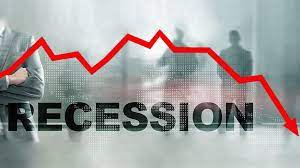
According to Morgan Stanley, the economies of Britain and the euro zone are likely to enter a recession next year, but the US may only just avoid it due to a robust job market.
The investment bank's analysts stated in a series of reports released on Sunday that China's anticipated reopening after nearly three years of COVID-19 curbs is set to lead a recovery in both its own economy and other emerging Asian markets.
The reports, which predicted that the global economy would expand by 2.2% next year rather than the IMF's most recent estimate of 2.7%, warned that there were "downside risks."
According to Morgan Stanley, the developed economies will be "in or near recession" next year, while emerging economies will "recover modestly," with an overall global recovery likely to be elusive. China's economy is expected to grow by 5% in 2023, outpacing the average 3.7% growth anticipated for emerging markets and the 0.3% average growth anticipated for the Group of 10 developed nations.
Global central banks have increased interest rates this year to combat raging inflation, and Morgan Stanley forecast that the Federal Reserve will maintain high rates in 2023 as long as inflation remains high after reaching a peak in the fourth quarter of this year.
"The U.S. economy just skirts recession in 2023, but the landing doesn't feel so soft as job growth slows meaningfully and the unemployment rate continues to rise," the report said, predicting a 0.5% expansion next year.
"The cumulative effect of tight policy in 2023 spills over into 2024, resulting in two very weak years," the report added.
Globally too, the peak in inflation should come in the current quarter, the analysts said, "with disinflation driving the narrative next year".
By the end of 2023, U.S. headline inflation will be 1.9%, and core inflation will be 2.9%.
Asia growth will slow to 3.4% in the first half of this year before picking up to 4.6% in the second, driven by domestic demand.
Cross-asset returns, particularly in fixed income, are expected to be significantly better in 2023 than in 2022 due to lower starting valuations.
Global equities will underperform high-grade fixed income.
U.S. shares underperform while EM and Japanese stocks perform better
(Source:www.euronews.com)
The investment bank's analysts stated in a series of reports released on Sunday that China's anticipated reopening after nearly three years of COVID-19 curbs is set to lead a recovery in both its own economy and other emerging Asian markets.
The reports, which predicted that the global economy would expand by 2.2% next year rather than the IMF's most recent estimate of 2.7%, warned that there were "downside risks."
According to Morgan Stanley, the developed economies will be "in or near recession" next year, while emerging economies will "recover modestly," with an overall global recovery likely to be elusive. China's economy is expected to grow by 5% in 2023, outpacing the average 3.7% growth anticipated for emerging markets and the 0.3% average growth anticipated for the Group of 10 developed nations.
Global central banks have increased interest rates this year to combat raging inflation, and Morgan Stanley forecast that the Federal Reserve will maintain high rates in 2023 as long as inflation remains high after reaching a peak in the fourth quarter of this year.
"The U.S. economy just skirts recession in 2023, but the landing doesn't feel so soft as job growth slows meaningfully and the unemployment rate continues to rise," the report said, predicting a 0.5% expansion next year.
"The cumulative effect of tight policy in 2023 spills over into 2024, resulting in two very weak years," the report added.
Globally too, the peak in inflation should come in the current quarter, the analysts said, "with disinflation driving the narrative next year".
By the end of 2023, U.S. headline inflation will be 1.9%, and core inflation will be 2.9%.
Asia growth will slow to 3.4% in the first half of this year before picking up to 4.6% in the second, driven by domestic demand.
Cross-asset returns, particularly in fixed income, are expected to be significantly better in 2023 than in 2022 due to lower starting valuations.
Global equities will underperform high-grade fixed income.
U.S. shares underperform while EM and Japanese stocks perform better
(Source:www.euronews.com)





